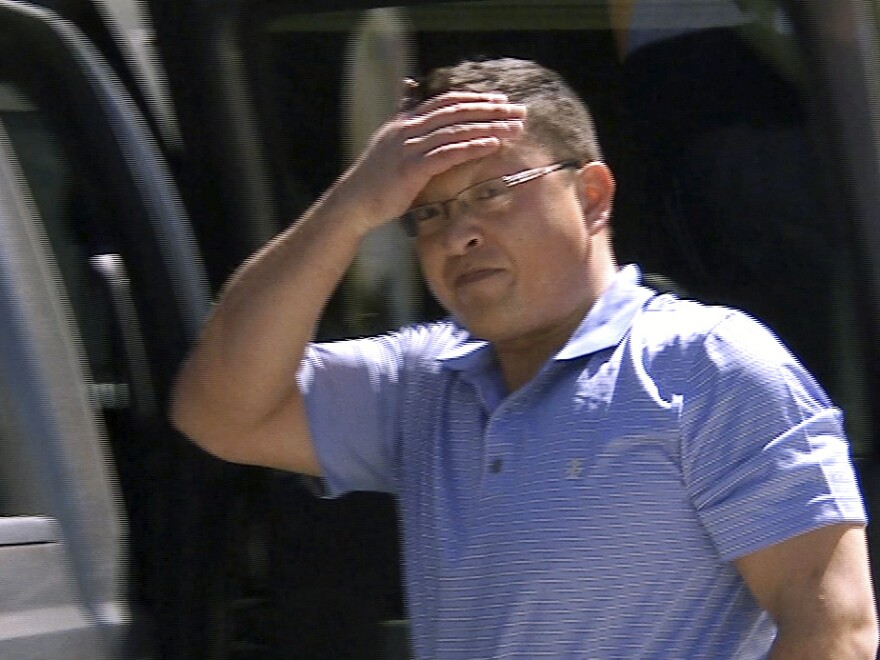This past summer, Montana resident Markus Kaarma pleaded not guilty to killing a 17-year-old German exchange student who had entered his garage. At the time, his lawyer said he would defend Kaarma using the state's version of the "castle doctrine," which says that a man's home is his castle and can be defended as such.
Opening statements concluded today in Kaarma's murder trial with prosecutors alleging that he shot Diren Dede in cold blood. Paul Ryan, Kaarma's attorney, said his client, who had been burgled before, was acting in self-defense.
Dede's parents, who were in the front row, cried during Deputy County Attorney Jennifer Clark's opening statement, The Missoulian reported.
Dede, who was from Hamburg, Germany, was unarmed at the time of the shooting, but as NPR's Martin Kaste reported in May, the teenager "may have been engaged in what local teens call 'garage hopping,' where they duck into open garages in search of beer or pot."
The Associated Press notes that the German government is closely following the case.
Clark said Kaarma fired four times without warning after an intruder tripped sensors he had installed. There was a pause between the third and fourth shots, she said.
Ryan, Kaarma's attorney, noted that Kaarma didn't know if the intruder was armed. He added that his client had social anxiety and, after the previous burglaries, had felt that his partner and their child were in danger. Ryan also said Kaarma's actions were permitted under the state's "castle doctrine."
The "castle doctrine" and the "stand your ground" laws came under scrutiny following the shooting death last year of Trayvon Martin. The man who shot him, George Zimmerman, was acquitted by a Florida jury after he used the state's "stand your ground" law as defense.
Copyright 2021 NPR. To see more, visit https://www.npr.org.


